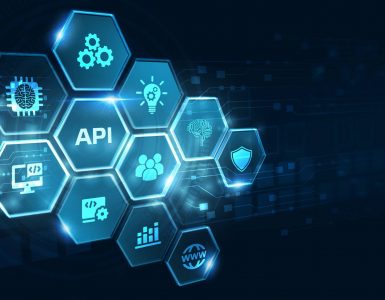Software development methodologies play an essential role in the overall quality of the product. These methodologies define the principles and practices that allow teams to work efficiently. DevOps is one such methodology that brings development and business operations teams together. It is a culture of creating one unified system that combines tasks and goals across different groups.
To ensure that the DevOps philosophy is successful with projects in real life, DevOps engineers and IT teams must work together to keep up continuous updates and deployment. This collaboration requires soft skills. The success of DevOps engineers dramatically depends on their ability to communicate and collaborate with team members to solve problems.
What are DevOps soft skills?
Soft skills are character traits that enable a person to work with others professionally. In the software industry, the technical skills get you noticed, but your soft skills make you stand out and help you advance within a team or a company.
DevOps soft skills are the traits that allow engineers to ensure team coordination and convince teammates to work towards a unified goal. Great DevOps engineers are usually excellent communicators and listeners.
Here we list some necessary soft skills for DevOps engineers.
1. Great listening
Listening is much more than just hearing out what others have to say. Great listeners can understand the orator’s point of view. The ability to listen might seem like a given characteristic trait, but it’s a difficult skill to master.
DevOps culture depends a lot on collaboration between teams. DevOps engineers must anticipate what other people are thinking and trying to express. Listening also implies understanding the impact, negative and positive, on the overall project by including other stakeholders’ ideas. Software development is a complicated process that includes multiple layers of communication. Troubleshooting sophisticated engineering problems is difficult, but the feeling of not being heard or understood can be highly frustrating for developers, designers, and other team members.
Develop listening skills to ensure that you understand what team members are trying to communicate.
2. Clear communication
DevOps methodology is significantly dependent on communication. One of the core responsibilities of DevOps engineers is to ensure an environment where developers and operations team members can ask questions and share ideas comfortably. The most successful software development teams have different people with different experiences coming together and creating great products.
Communication is vital for significant product development and delivery. Excellent communication means being clear about your intentions in conversations. There must be no scope for anxiety or confusion within a DevOps team. Practice transparent communication to ensure no ambiguity in your statements that can harm the project’s success.
3. Adaptability
Adaptability is mandatory for DevOps engineers and anyone working in the software industry. As software and hardware evolve continuously, adaptation is needed to keep pace with the new frameworks, programming languages, and tools.
DevOps engineers must be prepared to invest consistently in upskilling. Adaptability is a continuous process, and you can ensure that you are adaptable by:
- Learning a new programming language or skill extends your flexibility to work with teams. Continuous learning is one of the best ways to become adaptable.
- Challenge yourself to work with diverse teams and make yourself comfortable about working with others. As part of a team, DevOps engineers are responsible not only for the development but also for the deployment of projects. You must move beyond technical skills to work with business operations teams.
4. Be aware of when to ask for help
A remarkable characteristic of great leaders is that they know when to reach out to others for help. As a DevOps engineer, you must know when you need assistance from supervisors. DevOps methodology encourages the balance between self-help and collaboration.
Once you have gone through all the basic troubleshooting steps and taken the necessary provisions to solve a problem on your own, escalate to a superior. There is no point in getting stuck in a situation for hours or days that can be solved with a few minutes of conversation. Too much or too little collaboration is detrimental to a project. You must try to resolve issues independently and be aware of when to ask for help.
5. Foster creativity
Outside-the-box thinking helps engineers push the limits of science and solve the most challenging problems. Creativity is one of the essential DevOps soft skills allowing professionals to experiment with different approaches and tools to solve problems within the restrictions of DevOps methodology.
Fostering creativity is vital to spark inspiration and can prove to be a great team-building soft skill. Focus on promoting collective problem-solving, developing new ideas, and brainstorming different approaches within the team.
Conclusion
DevOps is the modern culture of the IT industry that has proven to be excellently efficient at accelerating product development and deployment. To be a successful DevOps engineer, focus on these soft skills along with other technical skills. Here’s a complete guide on how software engineers can explore DevOps opportunities.
Talent500 can help you broaden your horizon and explore exclusive DevOps opportunities at some of the fastest-growing companies in the world. Join us today.






Add comment